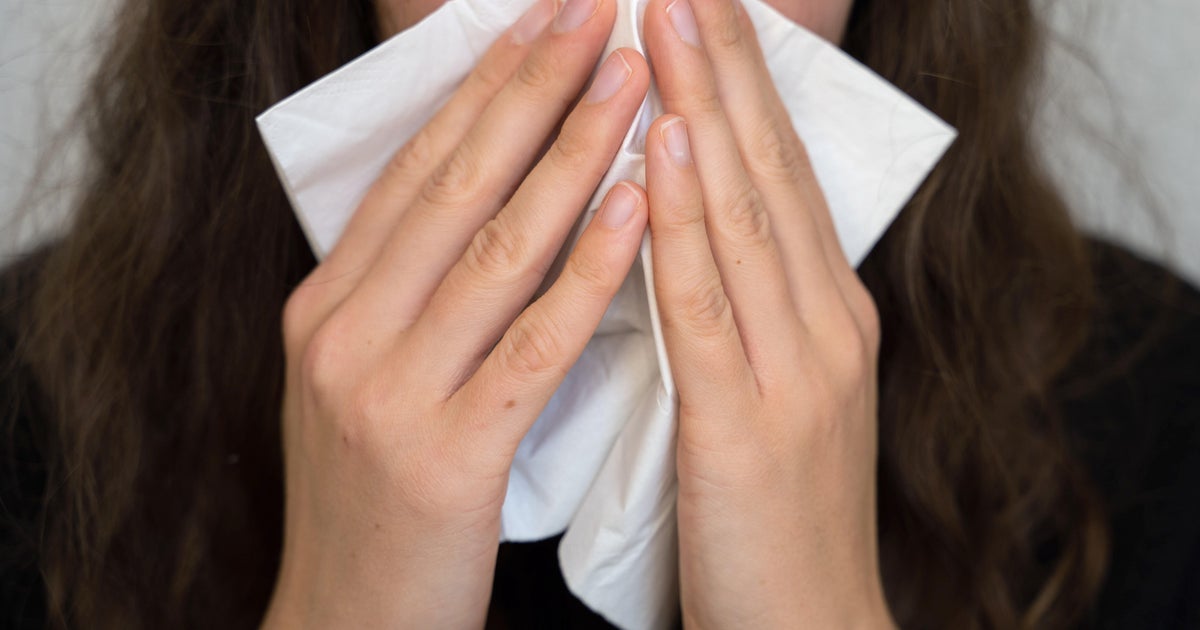What Is A Coronavirus -- The Common Cold's Deadly Relative
SAN FRANCISCO (CBS SF) -- There are illnesses you are probably pretty familiar with or have suffered from -- a cold, flu or maybe even pneumonia. But what is this coronavirus-- 2019-nCoV -- which is causing all the headlines? Here's an explanation from the World Health Organization.
What Is A Coronavirus?
Coronaviruses are a large family of viruses found in both animals and humans. Some infect people and are known to cause illness ranging from the common cold to more severe diseases such as Middle East Respiratory Syndrome (MERS) and Severe Acute Respiratory Syndrome (SARS).
What Is Novel Coronavirus?
A novel coronavirus (CoV) is a new strain of coronavirus that has not been previously identified in humans. The new, or "novel" coronavirus, now called 2019-nCoV, had not previously detected before the outbreak was reported in Wuhan, China in December 2019.
Is The New Virus The Same As SARS?
No, 2019-nCoV is from the same family of viruses as Severe Acute Respiratory Syndrome (SARS-CoV) but it is not the same virus.
How Dangerous Is It?
As with other respiratory illnesses, infection with 2019-nCoV can cause mild symptoms including a runny nose, sore throat, cough, and fever. It can be more severe for some persons and can lead to pneumonia or breathing difficulties. More rarely, the disease can be fatal. Older people, and people with pre-existing medical conditions (such as, diabetes and heart disease) appear to be more vulnerable to becoming severely ill with the virus.
Can I Catch It From My Pet?
No, at present there is no evidence that companion animals or pets such as cats and dogs have been infected or have spread 2019-nCoV.
Can I Catch It From Another Person?
Yes, the 2019-nCoV causes respiratory disease and can be transmitted from person to person, usually after close contact with an infected patient, for example, in a household workplace, or health care centre.
Who Can Catch Coronavirus?
People living or traveling in an area where the 2019-nCoV virus is circulating may be at risk of infection. At present, 2019-nCoV is circulating in China where the vast majority of people infected have been reported. Those infected from other countries are among people who have recently traveled from China or who have been living or working closely with those travellers, such as family members, co-workers or medical professionals caring for a patient before they knew the patient was infected with 2019-nCoV.
Health workers caring for persons who are sick with 2019-nCoV are at higher risk and must protect themselves with appropriate infection prevention and control procedures.
WHO is continuously monitoring the epidemiology of this outbreak to better understand where the virus is circulating and how people can protect themselves from infection
What Is The Incubation Period?
The incubation period is the time between infection and the onset of clinical symptoms of disease. Current estimates of the incubation period range from 1-12.5 days with median estimates of 5-6 days. These estimates will be refined as more data become available. Based on information from other coronavirus diseases, such as MERS and SARS, the incubation period of 2019-nCoV could be up to 14 days. WHO recommends that the follow-up of contacts of confirmed cases is 14 days.
Can It Be Caught From A Person Not Displaying Any Symptoms?
Understanding the time when infected patients may spread the virus to others is critical for control efforts. Detailed medical information from people infected is needed to determine the infectious period of 2019-nCoV. According to recent reports, it may be possible that people infected with 2019-nCoV may be infectious before showing significant symptoms. However, based on currently available data, the people who have symptoms are causing the majority of virus spread.
Is It Safe To Receive A Package From China?
Yes, it is safe. People receiving packages are not at risk of contracting the new coronavirus. From experience with other coronaviruses, we know that these types of viruses don't survive long on objects, such as letters or packages.
Will My Doctor Put Me On Antibiotics If I Show Any Signs Of The Disease?
No, antibiotics do not work against viruses, they only work on bacterial infections. The novel coronavirus is a virus and, therefore, antibiotics should not be used as a means of prevention or treatment.
Is There A Vaccine Like For The Flu?
To date, there is no specific medicine recommended to prevent or treat the novel coronavirus. However, those infected with 2019-nCoV should receive appropriate care to relieve and treat symptoms, and those with severe illness should receive optimized supportive care. Some specific treatments are under investigation and will be tested through clinical trials. WHO is helping to coordinate efforts to develop medicines to treat nCoV with a range of partners







